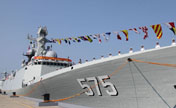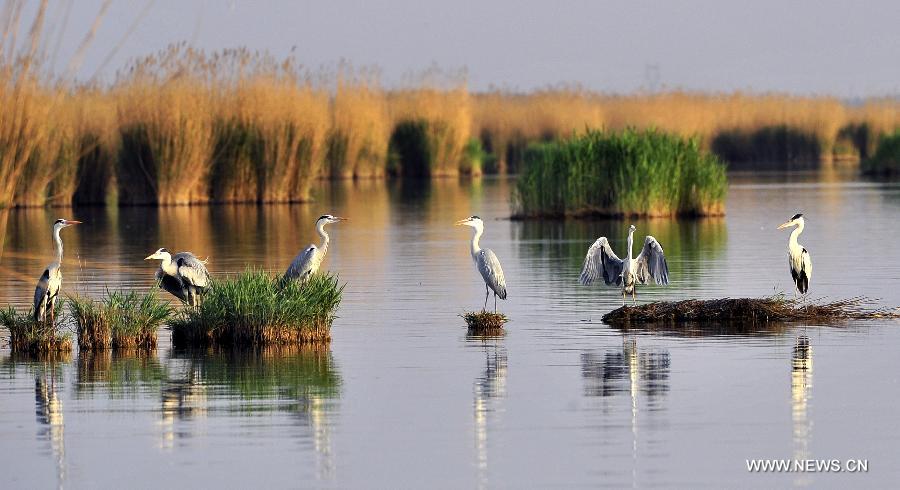
ASEAN must stop its members from fanning trouble to ensure ties between China and Southeast Asian countries prosper
Foreign Minister Wang Yi is paying official visits to Thailand, Indonesia, Singapore and Brunei from April 30 to May 5. That Wang is visiting Southeast Asia on his first overseas tour as foreign minister shows the importance China attaches to developing closer ties with its Southeast Asian neighbors. Also, Wang's visit to the four countries is expected to inject new vitality into China's diplomacy in the region.
Thailand has friendly ties with China, Indonesia holds an important position in the Association of Southeast Asian Nations, Singapore is hailed as the brain behind ASEAN and Brunei currently holds the association's rotating presidency.
China-ASEAN ties have made considerable progress, especially since the establishment of "China-ASEAN strategic partnership for peace and prosperity" in 2003, despite some twists and turns. Besides, the establishment of the China-ASEAN Free Trade Area has improved the two sides' ability to deal with the global financial crisis.
China supports and values ASEAN's unity and development and would like to see the establishment of ASEAN Economic Community by 2015. It also wants to see ASEAN playing a greater role in international affairs and in maintaining regional stability and development.
The South China Sea disputes that flared up again in 2009, however, have soured relations between China and some ASEAN member states. The Philippines stirred up the Huangyan Island crisis in 2012, and the Vietnamese National Assembly has passed the Law of the Sea to include China's Xisha and Nansha islands in Vietnam's territory.
For some time, some ASEAN member states have been trying to hijack the relationship between ASEAN and China for their selfish gains by stirring up trouble in the South China Sea. Vietnam and the Philippines occupy China's maritime areas and islands and are trying to use extra-territorial forces to consolidate their illegal occupation. The South China Sea disputes have thus become an important factor in China-ASEAN relations.
Since the disputing sides find it difficult to perceive each other's real intentions, some ASEAN states believe China is becoming increasingly assertive with its rising strength, while China thinks some ASEAN countries are trying to draw in external forces into the region to "balance" its rise.
The situation in the South China Sea is partly related to the "pivot to Asia" policy of the United States. And Japan, which has a dispute with China over the Diaoyu Islands, has joined the US' game to fish in troubled waters.
Among the four countries Wang is visiting, Indonesia and Brunei claim part of the South China Sea, too, but are different from the Philippines and Vietnam, because they want the disputes to be settled through negotiations. Thailand and Singapore, which too share the waters of the South China Sea, don't want the disputes to affect the overall China-ASEAN friendly and cooperative relations.
China will make its principled stance and bottom line clear when the time comes, and resolutely counter the disputing countries' unilateral attempt to change the status quo in the South China Sea. With regard to China's territorial sovereignty and maritime rights and interests, some neighboring countries' actions are complicating or exacerbating the situation, which China has strongly opposed in its white paper on national defense.
Regional stability has played a very important role in the region's rapid economic growth. So by fomenting trouble, these countries could undermine the stability of the region and jeopardize their development.
The Philippines, earlier this year, called for international arbitration in the South China Sea dispute, which has been opposed by China. In violation of the UN Charter and international law, the Philippines has illegally occupied some of China's islands and reefs in the South China Sea since 1970s. Opposing the illegal occupation, China has been urging the Philippines to withdraw all its men and materials from China's islands and reefs.
At the 22nd ASEAN Summit in Brunei last month, leaders of the member states issued a joint statement urging China to sign a legally binding "code of conduct" to avoid disputes. China is not afraid to talk about "codes of conduct" but first it has to be determined which country (or countries) is violating the spirit of the Declaration on the Conduct of Parties in the South China Sea. Otherwise, no "code of conduct" will seem credible.
China attaches great importance to its relations with ASEAN member states not only because it needs a stable and prosperous ASEAN, but also because ASEAN needs a stable and prosperous China. Of course, the South China Sea disputes will not, and should not, dominate China-ASEAN relations.
China will continue to promote friendship and partnership, deepen mutually beneficial cooperation with its neighbors, and ensure that its development brings even greater benefits to them. But ASEAN has to make concerted efforts to stop some of its member states from stirring up trouble to keep China-ASEAN ties on a path of smooth development.
The author is deputy director of China Institute of International Studies.
















 Brazilian self-defense martial art gains popularity in Beijing
Brazilian self-defense martial art gains popularity in Beijing


![]()
